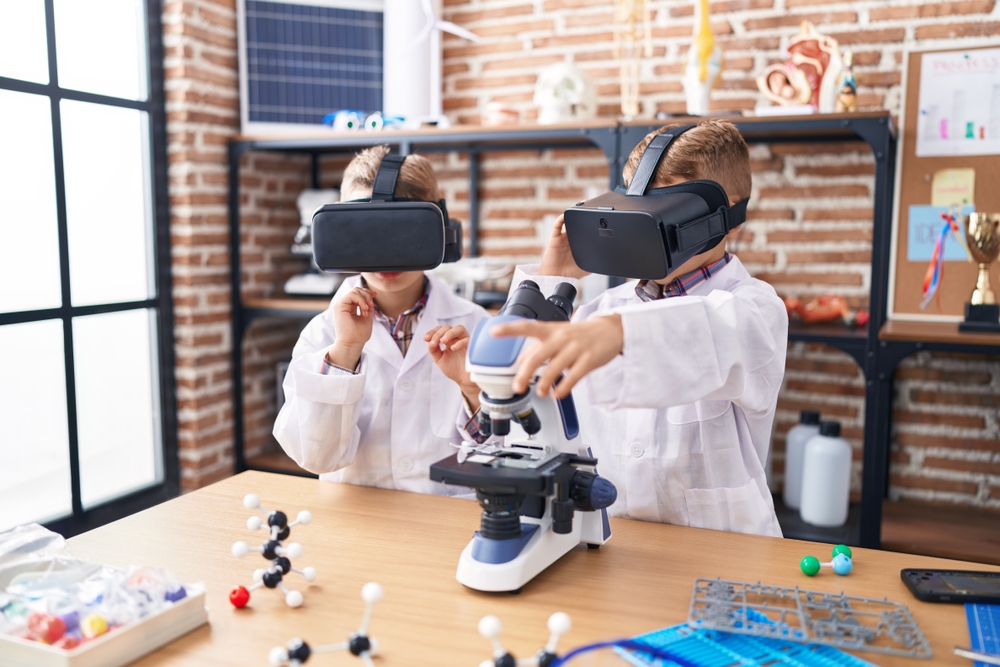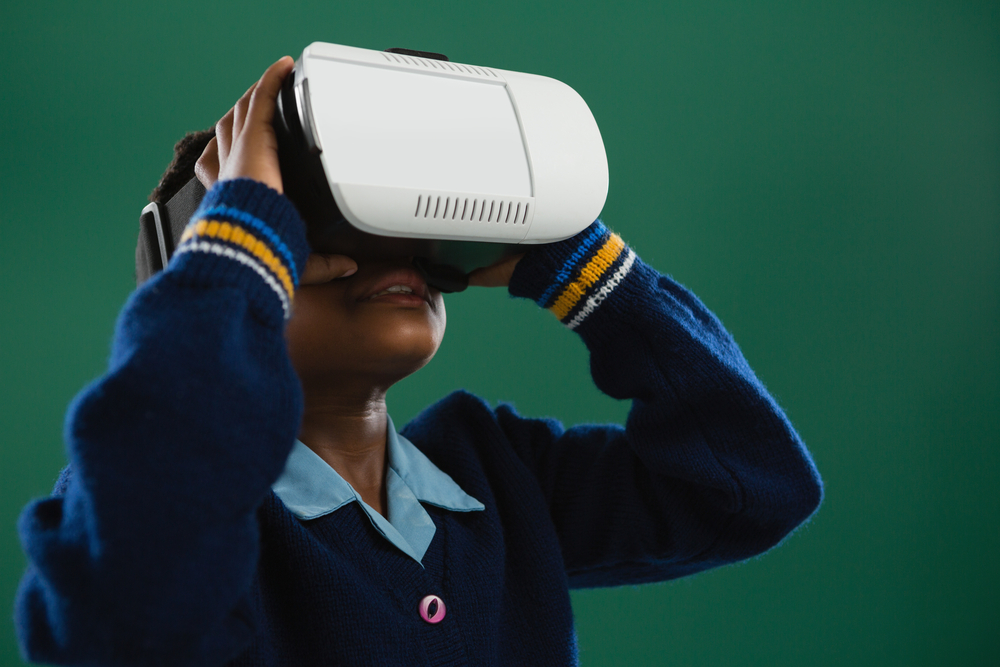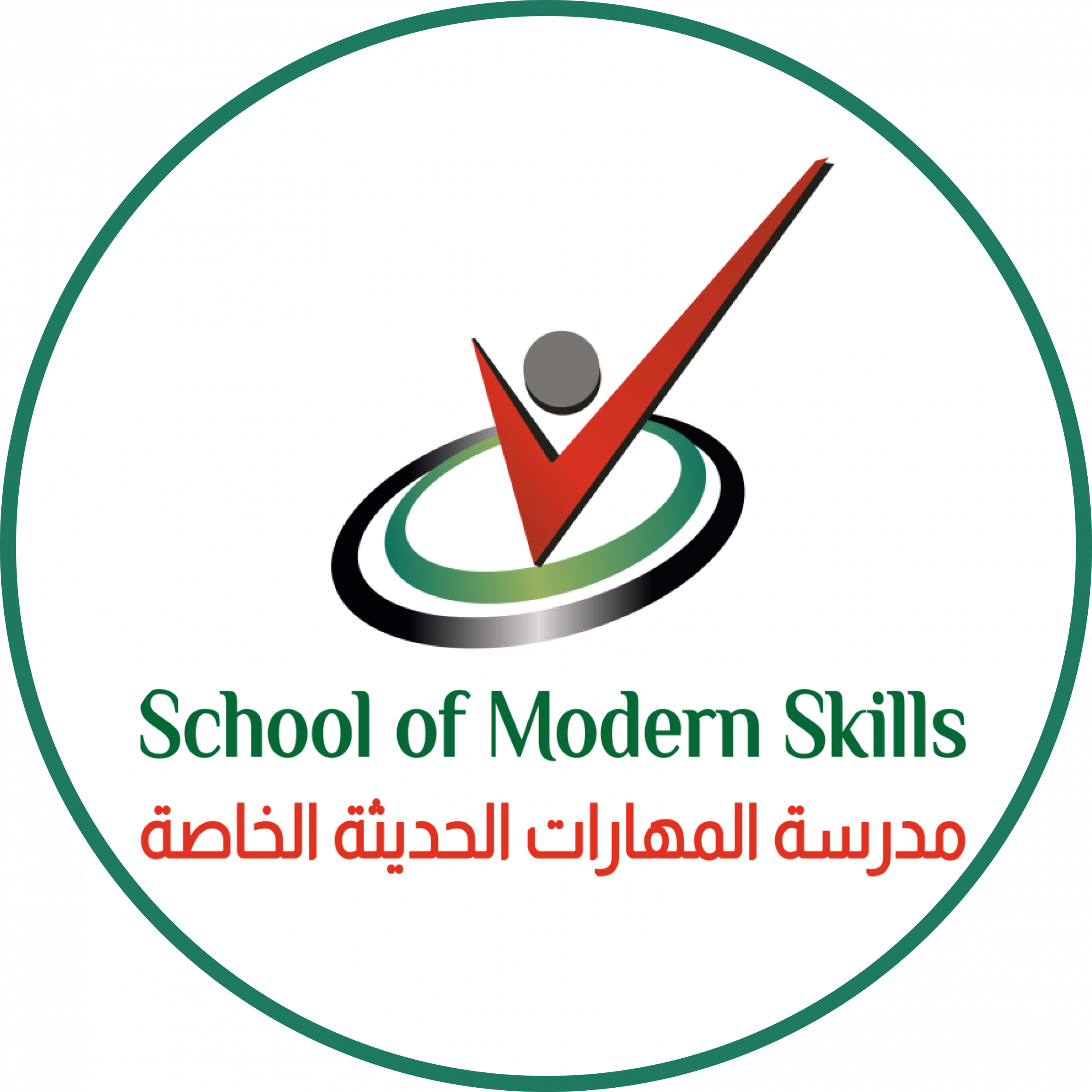
For Children with ADHD, traditional education settings can often be difficult and overwhelming, leading to difficulties with learning and progressing in school. Some children with ADHD. can become frustrated and feel as if their needs aren’t being met in school.
Studies have shown that the use of digital software and tools can be incredibly stimulating to those who have ADHD at a young age. In particular, video game software and tools such as virtual reality have been shown to increase engagement and boost the confidence of children learning with ADHD.
Whilst virtual reality has increased in prevalence across the educational sector, it is becoming a trusted method of digital education in schools and colleges across the world, but how exactly does this benefit and impact children who have been diagnosed with ADHD?
In this article, we will explore what ADHD is, how it affects young people and ways in which virtual reality can have an impact on those with neurodivergence.
School for Modern Skills provides each pupil with an exceptional learning journey inclusive of their needs and abilities. For more information on our school, get in touch with us today.
What is ADHD
ADHD stands for Attention Deficit Hyperactivity Disorder, it is a neurodivergence considered to be very common. In most cases, it is a disorder affecting the chemical balance in the brain causing symptoms such as impulsive behavior, a struggle to control themselves in social situations, and a lack of ability to concentrate. With this being said, it can severely affect children in a learning environment due to decreased engagement and erratic behavior.
Typically, ADHD is diagnosed at a young age and it is often quickly identified when children begin school and start to face difficulties with their learning. For a lot of traditional schools, teaching children with ADHD can be challenging, however, they are actively seeking ways to improve the learning experience for those with the disorder and increase their comfort in the school environment.
How Does ADHD Affect Children at School?

Attention Deficit Hyperactivity Disorder can affect children in many ways on an academic level. Some of these ways include:
- Organizational skills– ADHD can affect a child’s ability to effectively manage their time and keep things organized. This can have a profound effect on how they manage their schoolwork.
- Increased hyperactivity– this is a very common symptom of ADHD which can make it challenging to control impulsive behavior at school. As a result, it can become very disruptive to both the child and their peers in class.
- Remaining engaged– ADHD can make it challenging to remain focused and engaged in class, resulting in a lack of retention and slowed learning.
- Lack of attention to detail– ADHD can make children very impulsive and erratic, meaning they tend to rush through their work, paying little attention and not always using their learning time wisely.
How Can Virtual Reality Help Children with ADHD?
The biggest challenge of ADHD in young children is an inability to concentrate, something that becomes particularly challenging in the school environment. Virtual reality encapsulates the essence of gaming in an innovative manner that allows children to learn in an immersive way with less pressure than traditional teaching methods. Therefore, it becomes a fun way for children with ADHD to learn and retain information more effectively.
Increased Focus and Engagement
Virtual reality is renowned for its engaging nature and immersive qualities. As a result of this, it provides an engaging learning environment for children with ADHD with decreased distractions, therefore dramatically improving the level of concentration.
Virtual reality allows a controlled method of teaching for children with ADHD that increases their focus and keeps them engaged from start to finish on the task at hand. Moreover, children with ADHD can benefit from an enjoyable ‘game-like’ earning experience.
Social Interaction
ADHD can often be quite isolating for children as they can grow to feel left out, especially at school. Virtual reality encourages inclusion and teamwork across the classroom, allowing children to work together and socialize with their peers and teachers. Not only does this help to improve collaboration skills, but it allows children to make friends.
An Interactive Way to Learn
For children with ADHD, knowledge retention can become a challenge, even more so in traditional teaching methods where a lot of theory-based learning is required. Virtual reality encompasses an interactive learning style requiring a more ‘hands-on’ approach from pupils in the classroom. By increasing interaction overall, students who have ADHD are made more comfortable learning in a practical environment rather than one that’s considered passive.
Personalized Learning
Learning is not a one size fits all process, so, as a result, no two children will learn in the same way. For children with Attention Deficit Hyperactivity Disorder (ADHD), learning can often seem frustrating due to being too fast-paced and overwhelming.
Through the use of virtual reality, the learning process can be adapted accordingly to meet the pace and learning style of each individual pupil. Moreover, offering an inclusive learning method for each and every pupil regardless of their needs and abilities.
Sensory and Therapeutic Properties
Virtual reality software can provide therapeutic intervention to children with ADHD through stimulating virtual environments and sensory experiences proven to provide relief from the symptoms of ADHD, along with methods of calming erratic and impulsive behavior.
The use of therapeutic and sensory software via virtual reality provides children with a safe space and an inclusive, accepting environment where their ADHD symptoms are embraced rather than ignored and swept aside.
Improved Mental Health
For children with ADHD, learning is often daunting due to a struggle to focus. As a result, anxiety can be increased and exacerbated due to a fear of feeling left out and behind their peers. Due to the fact that virtual reality software can personalize the learning journey of each child, it allows a relaxed and casual learning experience free of pressure. Therefore, having an improvement in anxiety and overall mental health.
Can Virtual Reality Become Addictive?

Like the use of any digital software, prolonged use of virtual reality could cause it to become addictive. Due to the game like nature of virtual reality, children can become addicted to the dopamine rush that comes with playing with virtual reality software. As a result, children may become isolated, or their symptoms of ADHD could become worse.
In order to avoid these occurrences and to keep virtual reality fun for everyone, children should be supervised whilst using it and usage should ideally be capped and monitored on a daily or weekly basis. By doing so, children can reap the rich benefits of using virtual reality, whilst keeping safe.
In Summary
Overall, virtual reality is seen to have a positive impact on children with ADHD. School and learning can be a daunting process for children who present with symptoms of Attention Deficit Hyperactivity Disorder, however, the fun nature of virtual reality allows a more relaxed and inclusive way for children to learn without feeling left out and behind their classroom peers.
There are many key benefits of children with ADHD using virtual reality, particularly within a learning environment. These include:
- Improved mental wellbeing
- Inclusivity
- Interactive learning
- Increased engagement
- Adaptive learning
To keep virtual reality fun and beneficial, children with ADHD should be monitored whilst using it to avoid any addiction to the software.
School for Modern Skills
Based in Dubai, the School for Modern Skills provides exceptional standards of education in a range of outstanding academic facilities. Teaching our students a well-rounded education based on our values of technology, creativity, and innovation is incredibly important to us. As well as the pride we take in our accolades, including:
- Great sports and medical facilities to ensure the wellbeing and safety of our students
- Two awarded from EduTeach for innovation
- An onsite IHub to promote extra learning of subjects of interest
- A keen interest in artificial intelligence and a partnership with local universities to educate pupils on the benefits of AI
- We have participated in the Matatalap Robotics Competition, including access to our own robotics program
- We are a sustainable school with an inclusive sustainability program
- Transportation to and from school
For more information on what we do, visit our website today or get in touch with us to discover more about how we can help your child take the next step in their journey toward academic success.
Why not read more?
